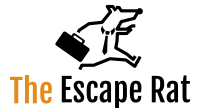It is easy to lose sight of your career and education goals in the midst of the daily grind. Creating a professional development plan gives you a framework to follow and ensures that you stay accountable. Just as you are constantly changing as a person, though, your development plan should be open to frequent adjustments. Your goals are sure to shift as your professional roles evolve. Even so, there are a few elements to your professional development plan that should always be present so that you will always continue to strive for greater heights.
1. SMART Goals
SMART goals are goals that are specific, measurable, attainable, relevant, and timed. Setting only vague goals for yourself is a surefire way to never actually accomplish them. By outlining meticulous details and strict completion dates, you stand to give yourself the best chance of following through.
As one example, you might have a goal of mastering new software that you can use in your job. This is attainable and relevant to your position, but you can get more specific by describing a particular task you want to complete with that software. Set a date by which to achieve this goal, and break the learning process down into smaller parts as a way to measure your progress.
2. Resume Refinement
Your resume is a valuable tool when applying for a new position, but it is also a way to document your professional development. You should always update your resume when you acquire new skills or take on new professional responsibilities. You can also tailor your resume depending on the position you are striving for at a given time so as to appeal to employers and clients within that niche.
If your resume is not yet an eye-catching masterpiece, consider using free resume templates. You can choose from a wide variety of professionally designed resume templates that you can customize with your choice of copy, colors, and images.
3. Personal Improvement
Learning new skills is a form of personal improvement that can keep you from feeling stagnant in your professional position. You should always strive to learn something new for the sake of your development, whether it is related to your career or a separate skill entirely.
Keep in mind that your health and fitness also contribute largely to your career success. Consulting with a certified life coach from The Escape Rat can be beneficial in helping you find a balance between your personal wellness needs and career goals.
4. Timeline
While each specific goal in your plan should have a timeframe in which you aim to achieve it, you should also have a broad timeline of your professional development as a whole. All of your short-term goals likely accumulate into one major long-term goal. While your ultimate destination may seem like a far-off dream, it is still important to plot it on an overarching timeline so that you can clearly see the finish line in the distance. Experts explain that creating a timeline is important for boosting motivation in project management, and the same holds true for your own professional development.
Building a successful professional development plan is all about setting goals. While certain tasks like writing a resume and plotting a timeline will facilitate those goals, the objective itself is the most important thing. By taking the appropriate steps along the way, you can fulfill whatever career dreams you strive for.

